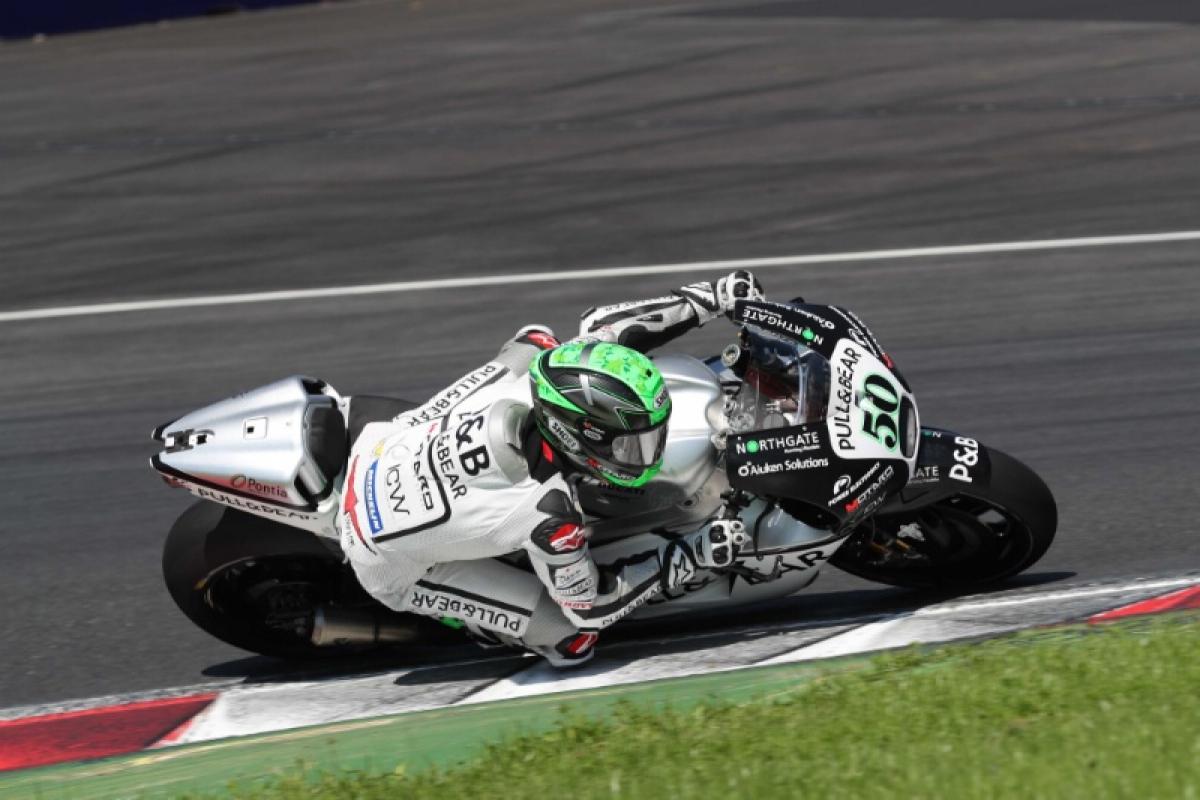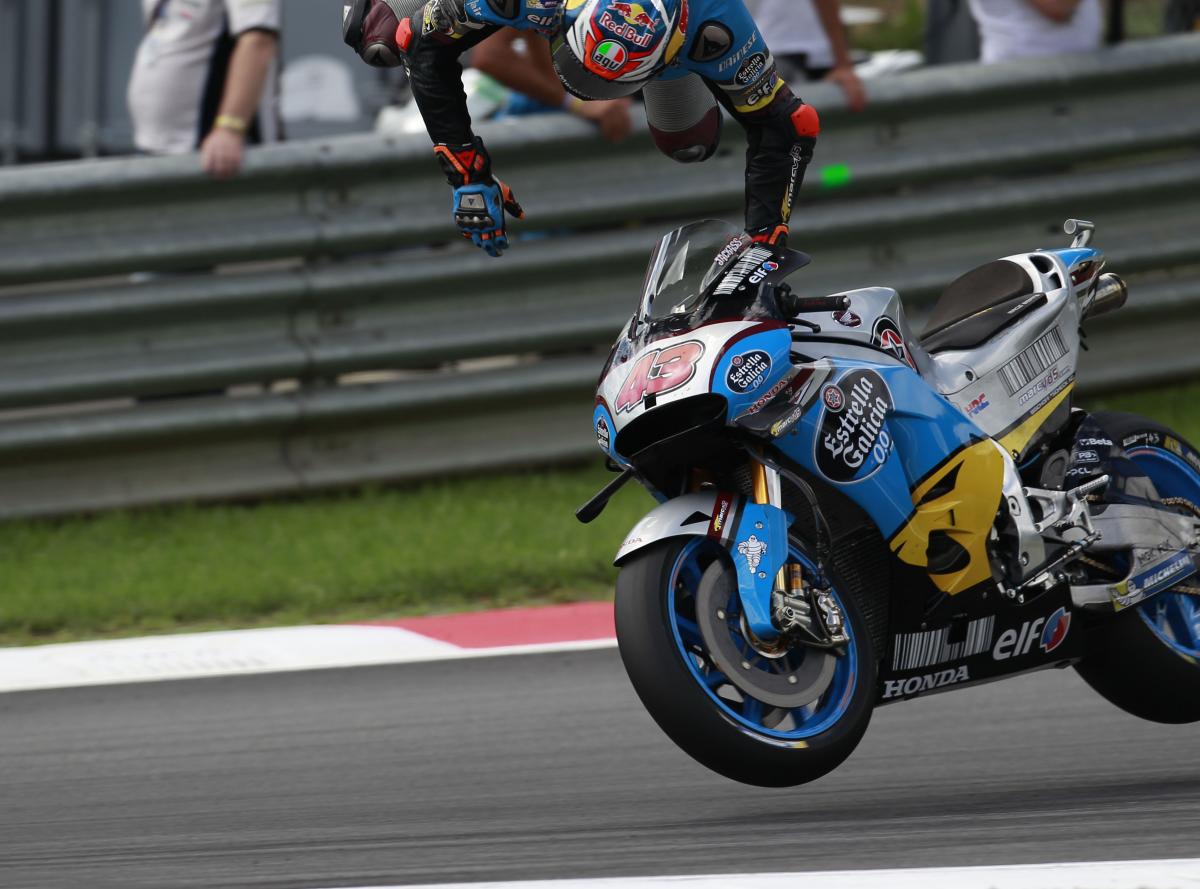MotoGP discussing 'more complex' dashboard communication

Discussions within Dorna have taken place over the viability of teams sending messages to riders' dashboards during races, as an alternative to establishing team-to-rider radio contact, a feature that was reawakened in the wake of the flag-to-flag German Grand Prix.
According to MotoGP technical director Danny Aldridge, talks are "in a very early stage" over whether the messages sent to riders during a race can be made more complex.
At the close of the Austrian Grand Prix, teams had been asked what kind of messages they would feel appropriate passing on to a rider in the midst of a race. Race direction will then discuss whether this information is feasible, and indeed safe.
Riders currently receive basic messages on their dashboard that come from race direction, rather than their teams. These messages can signal whether a rider has jumped the start, or if a race or session has been red flagged.
The idea to add complexity to these messages is also related to increasing the spectacle for television viewers. The message that would be made visible to riders could also be filtered through to the television feed, allowing viewers access to the text in front of a rider's eyes.
It is believed the messages would have to remain simple. For instance, one could read 'BOX' on his dash if there was a need to pit for a tyre change in a flag-to-flag race. Or perhaps a number, to give a rider an updated idea of the advantage or disadvantage he has during a race.
"There would be a limit on [the amount of] characters [shown on the dashboard] obviously," said Aldridge of the proposal.
"Basically they're going to work with teams to see what is feasible. There's not a lot you can give the riders [and] we don't want to give too much information to the rider. Maybe 'BOX'. The philosophy is you can give the rider information a lot earlier in the lap [meaning] they would then basically gain a lap."
Teams could potentially send a maximum of four messages per lap, with the text coming through as a bike's transponder passes one of a track's four sector splits, thus providing the rider with a more up-to-date idea of his rival's whereabouts.
This was a feature Valentino Rossi touched on when he was calling for the introduction of radio contact on the Sunday of the German Grand Prix. "Sometimes with the board it's difficult. Take Assen for example. If they [my crew] said that I already had two seconds of advantage, I would slow down and I could have avoided the mistake."
Aldridge added, "You don't have much time. You could have four messages a lap maximum, if it works that quickly. It might be a case of the first message coming in when you come across the start-finish line. [The message could read] 'Marquez +1' behind you. He may then crash at the first corner."
This idea was scorned by Eugene Laverty, who felt seeing a pit board once a lap is sufficient to relay the required information to a rider.
"Maybe instead of doing it in every checkpoint and sector, we just do it once a lap. Someone could hold out, like, a pit board. It's safer and you've got a straight line to look at it," joked the Northern Irishman. "I don't think [the messages] are necessary."
Another sceptic of the idea was MotoGP race director Mike Webb, who feels the taking of a rider's attention away from the action around him at several moments across a lap may actually detract from safety, rather than increase it.
"I think what we've got now, a simple light signal, that's simple to recognise when travelling at speed on a motorcycle is valid. The technology now exists so we can be a lot more complex and teams, if we wish it to be allowed, tailor messages to their rider.
"At the moment the teams have been asked for input. If it's available [we've asked them] what they would like, what do they feel is important to be transmitted to their rider. Then it's up to our side to say, 'First of all, that's not possible', or, 'Yes, that's possible.'
"But is it desirable and should it happen? I'm very much in that conservative camp where I think there isn't a place for lots of messages. In the same vein I don't really mind so much about radios but I don't really think there's a place for radios either.
"It's a human thing. One of the real positives of the flag-to-flag races and bike changing is the riders from the beginning said, 'The decision is in our hands.' We can feel the conditions. I like that element. I like the fact that motorcycle racing is very much a human sport.
"We're in an era where electronics control a fair bit of the motorcycle now, which it didn't use to. There is more scope now for the team being able to influence performance from pit wall.
"Just as a philosophy I'd rather that didn't happen. I'm in the conservative camp as far as messaging goes. My input is going to be, 'If something helps for safety [I'll consider it]. I don't want it to help overall improved performance because don't need them to go any faster."
What do the riders think?
Valentino Rossi:
"I agree, it's good. I want also the radio because during the race, especially in the flag-to-flag, it can be a help. It can also be good for the safety. If you have a crash in front, a yellow flag or some problem with the engine, or with the oil, it's OK. Also, I always seem to make the wrong decision so with the message on the dashboard it could be better!"
Andrea Dovizioso:
"I agree, especially with the safety. There are some really important messages that would improve that. If somebody crashes in front of you, the marshals are there to react. If it's really fast it might now happen. I don't agree if they open it too much. When you're riding it's difficult to read. It's important to just have the safety message, not all the details about what happened, like the lap time."
Marc Marquez:
"For me one of he best things about motorcycles is that you have the team behind but when you're on track the rider is alone. He must make the decision. For that reason the teams pay us, to take the decision, to be the fastest every time. For me one of the things I don't like in Formula 1 is that most of the time the team lead the race. For me, if you have the correct meetings before the race, if you are clever enough on the bike... Also the experience with the flag-to-flags it's OK. For example in Germany I was the guy that changed the bike at the correct time but maybe here it would be the opposite. But that is a nice thing for the races."
Cal Crutchlow:
"I would rather that than someone blasting in your ear halfway round a lap. But I think probably some people are pushing for it and they'll get it. I don't know who. I'm sure some riders are asking for it and they will get it. It will then be mandatory. But you don't have to read it, do you? The problem is, how do you send something back? It's OK reading something but the information is more the rider to the crew chief, rather than the crew chief to the rider. What can they tell you? Pit? It's drying up? F**k! You're not on the bike mate! You can't really make that call. Just because someone else has pit? I don't know what they can tell you. I don't think it's necessarily a good thing. In Germany I said that if I pitted two laps before I would have beat Marquez. I didn't. I followed the two riders with near enough the most grand prix between them. At the end of the day I don't think it would have changed my decision. I did what they did. I should have pitted, but I couldn't see my pit board."
Eugene Laverty:
"I only saw the headline. I didn't look at it any more. It seems crazy. There is another idea. Maybe instead of doing it in every checkpoint and sector, we just do it once a lap. Someone could hold out, like, a pit board. It's safer and you've got a straight line to look at it! I'm not keen on that idea. I don't think it's necessary."
Maverick Vi?ales:
"[Whether it's a good idea] Depends on the message. If it's 'box' or 'OK' or 'Sector 3', something like this, it's OK. But if they start to send messages like a normal [longer] message I think it's difficult, almost impossible."

